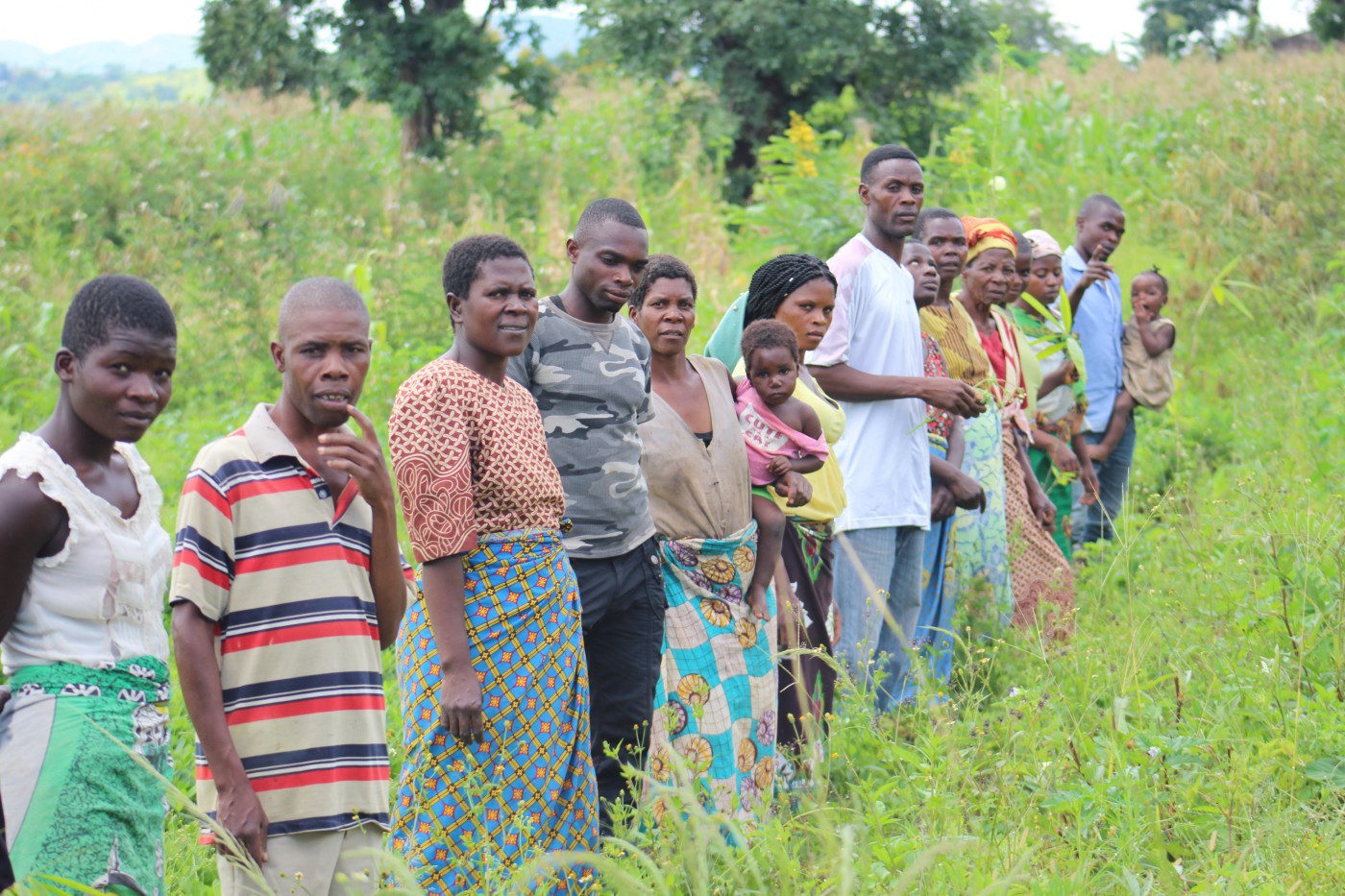with our monthly newsletter.
Village members plant bamboo to slow the water flow from a nearby mountain. Credit: Theodora Kachingwa
Patricia Jime is a 24-year-old mother of two from the village of Nthenga, Malawi. She's also a smallholder farmer who grows groundnuts, maize, and tomatoes, and like most households in Malawi, the day begins for Patricia and her family with breakfast cooked using firewood.
But in recent years, firewood has become increasingly scarce across the country. According to Zacharia Magombo, Principal Scientific Officer at the National Herbarium and Botanic Gardens of Malawi, over the next five years the demand for wood will exceed the number of trees that can be regenerated in Malawi's forests, farms, and tree plantations. As more and more trees are cut down to meet fuel and construction needs, deforestation is leading to increased soil erosion, more flood and drought events, and reduced crop productivity.

For Patricia, firewood is too expensive to buy (an average family requires USD 250 in firewood per year), so instead she must collect it from nearby Chongoni Mountain. Deforestation means she now must travel much farther to find firewood to cook daily meals for her family.
"We always have to go up the mountain to fetch firewood, which is very far," says Patricia. "I leave home as early as 4:00 a.m. and I arrive back at 6:00 p.m. What is even more hard is that I return home very tired and with a bad backache and sore swollen feet. Before I can even begin to heal properly, the firewood runs out and I am forced to make the trip again."
While collecting firewood, Patricia isn't able to invest in income generating activities that would provide more income and greater food security for her family.
"I don't have much time or energy to focus on more productive activities like doing small businesses or working on my field," she explains.
Planting a Solution
In February 2019, the Feed the Future Malawi Ag Diversification Activity (AgDiv) launched a national campaign to address deforestation and improve agricultural resilience using Dendrocalamus asper, a quick-growing and non-invasive species of bamboo. This bamboo, known as giant or dragon bamboo, takes only five to seven years to mature, after which it continues to produce new shoots for more than 50 years. Other hardwoods can take decades to mature.
Five to six bamboo seedlings, costing under USD 2.00 each, can supply enough fuel to meet the average household’s cooking needs. This makes them highly cost effective: USD 18.00 is enough to supply a household with 10 bamboo plants, which will not only meet cooking fuel needs, but also generate an additional USD 160 per year if the household sells surplus fuelwood. With AgDiv purchasing seedlings for the initial year of the campaign, other NGOs and private sector partners have stepped in, pledging to distribute five million bamboo seedlings by 2021 — enough to meet as much as 20 percent of current fuelwood demand for the entire country.
So far, AgDiv has distributed nearly 200,000 bamboo seedlings across Malawi, and Patricia's village of Nthenga is one of the areas that received bamboo. In addition to 10 seedlings that Patricia planted around her home and garden, the village received 300 seedings that it planted as a community woodlot to create a buffer zone at the base of the mountain.
As the bamboo seedlings mature, their roots will help to control water flow down the mountain, reducing soil erosion and flooding in the fields below and allowing indigenous trees to naturally regenerate. They will also provide a sustainable source of fuelwood and timber so that Patricia no longer needs to make her day-long trek across the mountain.
An added benefit of bamboo is its role in helping address climate change. According to Project Drawdown, "bamboo rapidly sequesters carbon in biomass and soil, taking it out of the air faster than almost any other plant." Project Drawdown ranks bamboo 35th out of 80 solutions with the potential to reduce greenhouse gases in the atmosphere.
For Patricia, bamboo provides a solution to a changing environment, while also creating economic opportunity; "The future looks good for our community," she says. "Bamboo has many benefits. We can use it for both furniture and construction industries. It will also ease the pressure on the few available trees and help us to sustain the environment. If our fields are not eroded, we will be able to produce more in our farming, which will improve our food security."
Palladium implements AgDiv for USAID. See this video to learn more about the use of giant bamboo in Malawi.
with our monthly newsletter.

